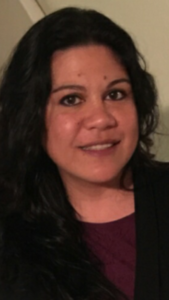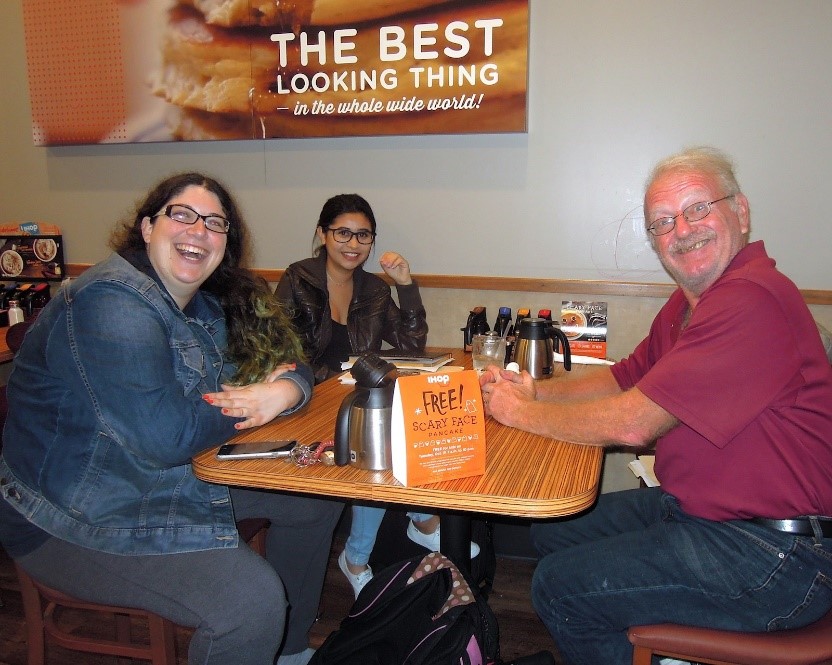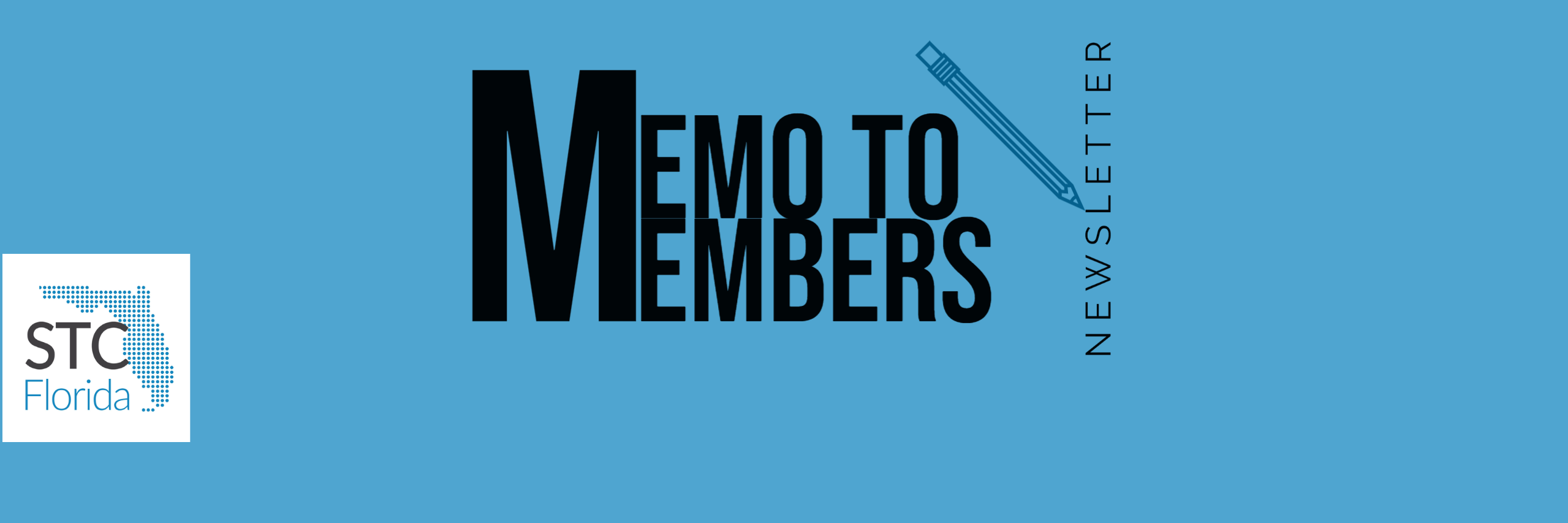
Part 1 of a 4-Part Series
FTC/STC Student Mentoring Program Wraps Up Exciting Year
And Lays Plans for Expanded Virtual Connectivity Next Year

By: Misty Arner
Co-Manager, STC-FTC Student Mentoring Program
Student Member, Florida Chapter, STC
Introduction
When I took my first technical communication course at UCF, I was introduced to the Future Technical Communicators (FTC) Club, sponsored by the Student Government Association (SGA). I became interested in not only joining the STC-FTC student mentoring program but taking over as program co-manager/coordinator. I felt that this would give me the experience and the ability to network with other students and professionals and that the title would look good on my resume. Throughout the program, I realized that many other mentees and mentors have benefited from the program, improving both academically and professionally.
Now, I have the privilege to present to you why you should consider becoming a student mentee or a professional mentor in this highly successful and internationally recognized 15-year (soon to be 16-year) program.
It was my pleasure to interview some of our current mentors, Dan Voss, Karen Lane, and W.C. Wiese, along with their mentees, Andy Romero, Emily Wells, Tisa Newcombe, and Nick Mina, to share their experiences and success stories.
Their in-depth and insightful answers to my interview questions expanded this article far beyond its original planned length. For this reason, Memo to Members has decided to present their stories, followed by a preview of next year’s student mentoring program with increased virtual connectivity, in a four-part series.
The series will run as follows:
May edition: STC Fellow and mentoring program co-manager Dan Voss and his two 2017-2018 mentees, former student co-manager of the mentoring program Emily Wells and current FTC President Andy Romero, tell their stories.
June edition: STC Fellow and chapter director-at-large Karen Lane and her mentee Tisa Newcombe tell their story.
August edition: STC Fellow and returning Chapter Treasurer W.C. Wiese and FTC Treasurer Nick Mina tell their story.
September edition: We take a peek at the updated STC-FTC student mentoring program for the upcoming 2018-2019 academic year, which will include options for virtual mentoring as well as virtual participation in FTC. The 2018-2019 program will pilot these options for implementation in the emerging statewide Florida STC community in the years ahead.
I hope this series of articles will encourage both tech comm students and professional technical communicators to become active members in the Florida Chapter of the Society for Technical Communication (STC), encourage UCF tech comm students (both undergraduate and graduate) to join Future Technical Communicators (FTC) and to participate as mentees and mentors in the STC-FTC Mentorship Program.
Part 1: Chat with Mentor Dan Voss and Mentees Emily Wells and Andy Romero

Photo by W.C. Wiese.
Following are the questions with responses from mentee Emily Wells and mentor Dan Voss, and then the same questions with responses from mentee Andy Romero and mentor Dan Voss.
Emily and Dan
What do you believe was the single most beneficial aspect of your mentoring partnership?
Emily: Getting more involved in our chapter. While I already attended chapter meetings and got a lot out of them, I was encouraged very strongly (*cough* Dan*cough*) to take over as mentoring program co-coordinator midway through the 2016-17 year, something I had never intended to do. But I’m glad Dan encouraged me to get more involved in the chapter this way, as not only did I get to know a group of awesome people I enjoy spending time with, being more involved also helped me land my current job. The person who gave his manager my resume had known me for two years through my work for our chapter, and as a result recommended me based on my work ethic.
Dan: I think it was the natural compatibility between Emily and me. Basically, we’re both crazy. We’re also very competitive and strong-willed editors. I’ve enjoyed our editorial “jousts,” which have intensified since Emily has moved into her new role as editor of Memo to Members. What really annoys me is that she is often right. LOL.
Does any particular activity or project in your mentoring partnership stand out as the most successful? Explain.
Emily: See my answer to the first question.
Dan: As mentoring program co-managers, we made the mentor-mentee pairings for the 2017-18 STC/FTC programs. We had a record number of M&M pairs over that period. As a result, we burned the midnight oil to make optimum pairings. Due to the large number of participants in the program, we also had to conduct multiple kick-off meetings both years. The first 2 months of the mentoring program are pretty intense for the program managers, but when we look at the number of successful partnership we’ve had the past 2 years, it’s all worth it.
Job search and placement was a focus last fall in the last semester of your 1½-year mentoring partnership. What did you do?
Dan: We focused on parlaying Emily’s multiple responsibilities and activities with both FTC and STC into strong positive discriminators in her resume and portfolio.
Emily: Dan was a big help bringing my tech comm work into my portfolio, particularly since I was a tech comm minor, so it wasn’t the main focus of my portfolio at the time. He also provided some great advice that helped me jazz up my resume and LinkedIn.
Did Dan’s long career at Lockheed Martin factor in the position Emily just accepted there?
Dan: Not directly. I pulled no strings. Emily was hired strictly on merit. I believe I helped her showcase her diverse abilities and her leadership experience to gain an edge in the highly competitive job market. Lockheed Martin survived 40 years of Dan; the question is, are they ready for Emily? LOL.
Emily: Actually, Dan didn’t know I had applied for the job until after I got it. But he was a factor in my decision to apply. After all, if they could put up with Dan for 40 years, they must be a pretty impressive company. All joking aside though, he encouraged me to pursue employment at Lockheed through sharing about his career and experiences there. Plus, even though he doesn’t know it (and I’ve tried to avoid telling him to keep his ego manageable) he helped give me the confidence to pursue a career in tech comm. Coming in as a Writing and Rhetoric major versus a tech comm major made me wonder if I really wanted to pursue a career in tech writing, if it was something I could do. Working with Dan helped show me that not only was this something I could do, it was something I could excel at. And wouldn’t you know it, that ended up coming up in my interview, and having talked it through with Dan gave me the confidence as well as the right answer for that question. So, while he didn’t do anything to influence the hiring decision, his help and our mentoring partnership were definite factors.
Did you face any particular challenges in ensuring a successful mentoring partnership? How did you overcome them?
Emily: Taking over as mentoring program co-manager, surprisingly enough, became my greatest challenge. Once I took over, I became heavily involved in STC, and since my mentor was the other co-manager, a lot of our time inevitably became about the mentoring program rather than our mentoring partnership. Yet while I didn’t necessarily achieve everything I had wanted to at the beginning of the program, I learned so much that ended up helping me succeed (which ties back to the benefit of being flexible).
Dan: Time. Our academic, professional, and STC plates were both overflowing most of the time. We had to balance multiple priorities. At times, our FTC and STC commitments cut into our “mentoring time,” but I believe our responsibilities and projects were, in themselves, a valuable mentoring experience.
What is the most important thing you believe a mentee/mentor can do to derive maximum benefit from a mentoring partnership?
Emily: Be open communication wise. Don’t be afraid to reach out and respond to your mentor. Also, be flexible. Challenges will arise. You’ll go from thinking you have all the time in the world to both you and your mentor being slammed, struggling to find time to carry out what you had planned. So be willing to switch it up. From my experience, mentors are willing to flex and work with you, so be willing to do the same for them.
Dan: Be available and provide opportunities. Mentee participation is the most critical factor. The more a mentee is willing to put into the mentoring partnership, the more he or she will get out of it.
Do you have any suggestions on how the mentoring program might be improved?
Emily: This is something Dan and I have talked about a lot, especially while I was co-coordinator and especially in light of the changing dynamic of the UCF tech comm program. With more people taking online-only classes, we need to adapt as well to serve not only those who are physically in Orlando but those are remote. We’re hoping to present these new ideas to our chapter’s Administrative Council to then incorporate into next year’s program. So stay tuned!
Dan: Although we believe that face-to-face contact is a key element in a successful mentoring partnership, we need to explore virtual forums as well to deal with to the challenges distance and schedules can present. This is also a natural part of the new STC Florida Chapter’s initiative to build a statewide community. Down the road, we can envision including other Florida universities close to our emerging Local Interest Groups (LIGs) in the mentoring program.
Andy and Dan
What do you believe was the single most beneficial aspect of your mentoring partnership?
Andy: The most beneficial aspect of the mentoring partnership was having the opportunity to work with Dan Voss, who has been an excellent wise, organized, and consistent mentor. He has opened the doors to the technical communication world and given me the exposure I needed to become more involved and knowledgeable about the profession.
Dan: It has been extremely gratifying to see Andy grow in her leadership role within FTC as well on the Administrative Council. Andy channels youthful enthusiasm with a maturity beyond her years. She is versatile, talented, and task-driven yet people-oriented. She will go far in our profession.
Tell me about the article in the Summit series that you coauthored for intercom, “Stay Awhile.” How did you divide up the research, writing, editing, and photo gathering for the project?
Andy: The “Stay Awhile” article for STC’s intercom was one of the most challenging and rewarding long-term projects we have worked on. Collaborating with Dan made the whole process so much easier. We managed to face our hurdles head on and deliver a superb intercom article.
Dan: While creating “Stay Awhile” for STC’s intercom, we got off to a bit of a rocky start when spring calendar events were not yet available, but we persevered to research, write, and—thanks to Andy’s versatility—illustrate (with photos) an annotated May Central Florida events calendar that should be very useful to Summit attendees who wish to extend their stay before or after the conference. In addition, Andy is the first and only person ever to work successfully with me in the dreaded new-fangled Google Docs. J
What is the most important thing you believe a mentee/mentor can do to derive maximum benefit from a mentoring partnership?
Andy: To successfully benefit from the mentoring program, a student needs to put in the time and effort with his or her mentor. This can be done face to face or even using online collaborative tools. The more the student is involved with his or her mentor, the more that student can be involved in STC opportunities and gain more experience in the field.
Dan: My answer is the same as it was in my interview about my partnership with Emily. Be available and provide opportunities. Mentee participation is the most critical factor. The more a mentee is willing to put into the mentoring partnership, the more he or she will get out of it.
Both of you hold active leadership positions in the STC/FTC partnership, how did this affect your mentoring partnership?
Andy: Being deeply involved in STC and FTC took up a significant part in our mentoring projects; however, most of these collaborations were beneficial in meeting our mentoring objectives. Overall, Dan and I had consistent communication and we worked around our busy schedules.
Dan: Our STC/FTC projects tended to dominate our time together. We’ve had to make a conscious effort to work on our specific mentoring objectives. Of course, much of our project work has involved those objectives, so we’ve been able to balance the two most of the time.
Do you have any suggestions on how the mentoring program might be improved?
Andy: One improvement that can be made on the mentoring program is having a large project to involve all the mentors and mentees. This can bring the FTC and STC community together even further and can provide all the students with exposure to the field. In addition, new online collaborative tools can be used to increase our number of mentors and mentees involved in the program.
Dan: My answer is the same as it was in my response with Emily. Although we believe that face-to-face contact is a key element in a successful mentoring partnership, we need to explore virtual forums as well to deal with to the challenges distance and schedules can present.
Watch for Parts 2, 3, and 4 of this series in the June, August, and September editions of Memo to Members!
